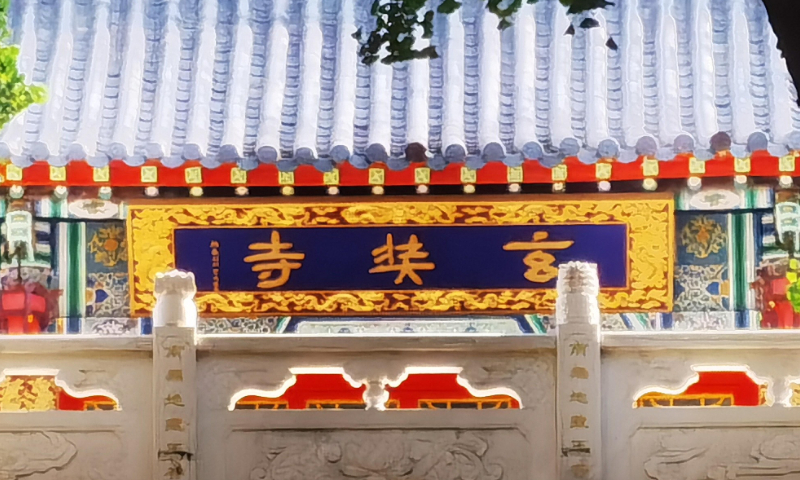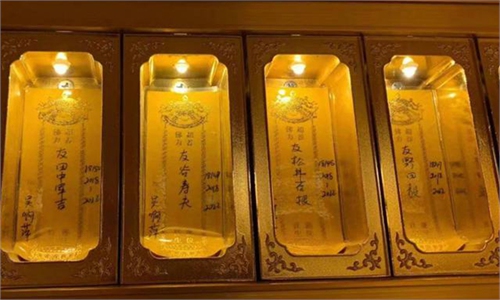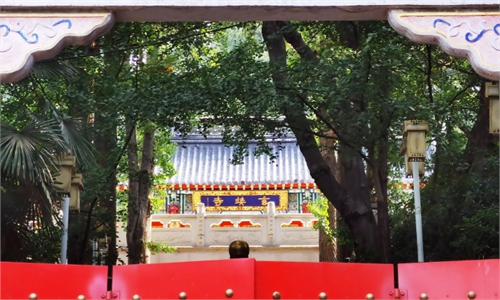Religious authority, Buddhist association require nationwide rectification after Japanese war criminals found enshrined in Nanjing temple

Xuanzang Temple in Nanjing, East China's Jiangsu Province Photo: VCG
China's religious affairs authorities demanded religious venues nationwide to launch emergency self-review and inspection after the incident where the memorial tablets of Japanese war criminals were found being enshrined in a Buddhist temple in Nanjing, which sparked public outrage given the Chinese people's bitter memories of the Nanjing Massacre, where more than 300,000 civilians and unarmed soldiers were killed by the Japanese invaders.
The National Religious Affairs Administration announced on Tuesday that it required the religious organizations in China to conduct self-review and self-rectification.
The administration required local religious authorities to enhance management on religious venues, strengthen their education on patriotism, collectivism and socialism, and increase the sense of nationhood and legal awareness of religious people to prevent similar cases in the future.
The Buddhist Association of China on Monday also required nationwide Buddhist venues to review the memorial tablets in their locations.
The association said in an announcement that there are some loopholes in the management of memorial tablets enshrined in some temples such as lack of check of the names and overly-high charges.
Local temples should enhance management to prevent violations of the law and public order or hurt the people's feelings, according to the announcement.
Local temples should take this rectification as an opportunity to ensure Buddhist traditions can be carried on healthily, read the announcement.
The government of Nanjing, capital of East China's Jiangsu Province, said on Sunday that the local police detained a woman named Wu Aping who enshrined the memorial tablets of Japanese war criminals in the local Xuanzang Temple.
According to the Nanjing government, Wu suffered psychological trauma and was haunted by nightmares after coming to Nanjing and learning about the history of the atrocities of the Japanese war criminals. After coming into contact with Buddhism, she came up with the wrong idea of "resolving grievances" and "getting rid of suffering" by enshrining five Japanese war criminals who invaded China, Wu confessed.
The Nanjing government dealt with the temple as it failed to check the identities of the names on the tablets and did not report the issue after finding out the names of Japanese criminals. The abbot of the temple was removed and is under investigation.
The issue revealed the loopholes in the city's management over religious venues. Several officials were punished, the government noted.


